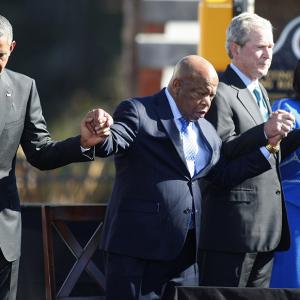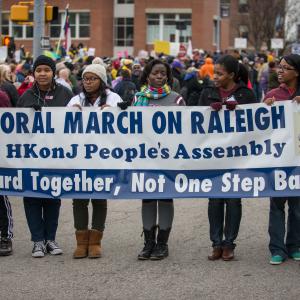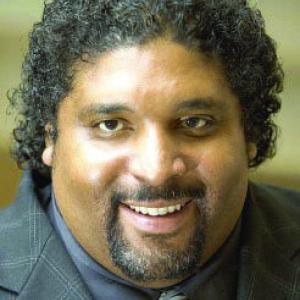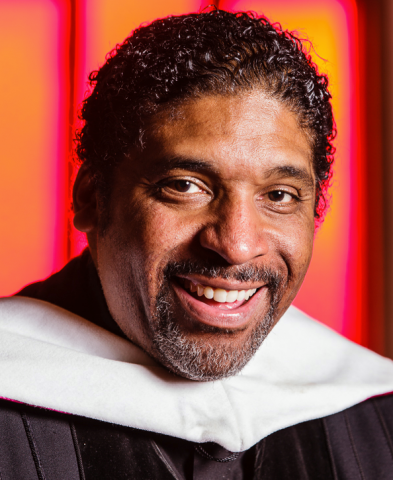
The Rev. Dr. William Barber II is architect of the Forward Together Moral Mondays Movement in North Carolina, and pastor of Greenleaf Christian (Disciples of Christ) Church of Goldsboro, N.C.
Posts By This Author
Raising Our Moral Voices With Pope Francis

Image via Savvapanf Photo / Shutterstock
As one human family, it’s time to raise our moral voices.
As Pope Francis has illustrated, true faith is not a disengagement from the challenges of the world but an embrace of those very challenges.
The truth is there is no gospel that is not social; no gospel that relieves us of our call to love our neighbors as ourselves; no gospel that lives outside God’s admonition to serve the least of these. Pope Francis has made this clear, and for that we thank him.
In the history of the United States, a moral critique has always been at the center of any challenge to the structural sins of society—slavery, the denial of women’s rights, the denial of labor rights, the denial of equal protection under the law, the denial of voting rights, and the promulgation of unchecked militarism. We have never overcome any of these evils without a moral critique that challenged their grip on the heart and imagination of our society.
Only Black Deaths Matter
When the Confederate flag was removed from the South Carolina statehouse Friday morning, Gov. Nikki Haley spoke solemnly of the nine black churchgoers who were shot to death less than a month ago at Charleston’s Emanuel African Methodist Episcopal Church.
“We have all been struck by what was a tragedy we didn't think we would ever encounter,” Haley said of the horrifying massacre before she signed the bill with nine pens that will go to the families of the victims. “Nine amazing people that forever changed South Carolina's history."
Haley also referenced the “grace” shown by the nine families when they forgave the white gunman. She said their grace helped usher the state toward this long overdue decision. The assassinations at Emanuel AME, followed by forgiveness from the grieving families, were similarly cited by several South Carolina lawmakers as their reason for voting to remove the flag. Black Deaths Matter. That’s the painful and dangerous narrative being developed out of South Carolina. Only Black Deaths Matter. Our nation is capable of doing the right thing – such as taking down the Confederate flag in the year 2015, a flag that represents the racist, immoral, unconstitutional defense of slavery and Jim Crow – but only when black deaths happen and are met by a response deemed acceptable. Ever since this flag was raised in 1961 to send the message that South Carolina would not honor equal protection under the law, tens of thousands of small and large protests have not been enough to move the power brokers to take it down.
The Martyrs of Emanuel
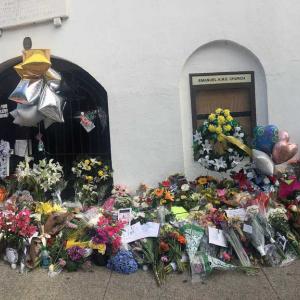
Emanuel AME Church, Charleston, S.C. on June 20. Photo by jalexartis / Flickr.com
There is a scripture that says we wrestle not against flesh and blood but against powers and rulers of the darkness. Within the nonviolent faith tradition it has always been clear that hate cannot drive out hate and evil cannot drive out evil, and so the Christians that were able to forgive the murder 48 hours after losing their loved ones is consistent with their faith Jesus said as he was being murdered by the state, "Father forgive them for they know not what they do." But this forgiveness should not be misinterpreted as a dismissing of the greater evil. Their forgiveness is also an act of resistance to the attempts to lay the blame for this horror at the feet of one man. If America is serious about this moment we cannot just cry ceremonial tears while at the same time refusing to support the martyred Reverend and his parishioners’ stalwart fight against the racism that gave birth to the crime.
The Long History of Sexual Baiting in America’s Effort to Extend Civil Rights
From Ava DuVernay’s award-winning film to President Obama’s speech at the Edmund Pettus Bridge, America has remembered Selma this year. We have honored grass-roots leaders, acknowledged the sacrifices of civil rights workers and celebrated the great achievement of the Voting Rights Act. At the same time, we have recalled the hatred and fear of white supremacy in 1960s Alabama. But we may not have looked closely enough at this ugly history.
Even as we celebrate one of America’s great strides toward freedom, the ugliest ghosts of our past haunt us in today’s “religious freedom” laws.
Many able commentators have pointed out the problem of laws that purport to protect a First Amendment right to religious freedom by creating an opportunity to violate other people’s 14th Amendment right to equal protection under the law. But little attention has been paid to the struggle from which the 14th Amendment was born — a struggle that played out in Selma 50 years ago and is very much alive in America’s statehouses today.
We cannot understand the new religious freedom law in Indiana and others like it apart from the highly sexualized backlash against America’s first two Reconstructions.
We Are In a Crisis — a Moral Crisis
I believe that deep within our being is a longing for a moral compass. For those of us who are moved by the cries of our sisters and brothers, we know that, like justice, the acts of caring for the vulnerable, embracing the stranger, healing the sick, protecting workers, welcoming and being fair to all members of the human family, and educating all children should never be relegated to the margins of our social consciousness. These are not just policy issues; these are not issues for some left vs. right debate; these are the centerpieces of our deepest traditions of our faiths, of our values, of our sense of morality and righteousness.
We must remind those who make decisions regarding public policy what the prophet Isaiah said "Woe unto those who legislate evil ... Rob the poor of their rights ... make children and women their prey." Isaiah 10: 1-2
Martin Luther King, Jr. said 46 years ago in one of his last sermons that if you ignore the poor, one day the whole system will collapse and implode. The costs are too high if we don’t address systemic racism and poverty. It costs us our soul as a nation. Every time we fail to educate a child on the front side of life, it costs us on the back side — financially and morally.
With God Some Things Never Change
The better way says, if we follow God’s religious values we can use global technology, green economy, and targeted economic and infrastructure investment, total access to education, and creative job creation strategies to address the ugly realities of poverty. If we follow the enduring ethic of love we can beat our swords of racism into the plows that will till the new soil of brotherhood and sisterhood
If we see the poor as our neighbors, if we remember we are our brother’s keeper, then we shall put the poor, rather than the wealthy, at the center of our agenda.
If we hold on to God’s values, the sick shall have good health care. The environment shall be protected. The injustices of our judicial systems shall be made just. We shall respect the dignity of all people. We can love all people. We can see all people as God’s creations.
We can use our resources to develop our minds and economy, rather than build bombs, missiles, and weapons of human destruction.
Do we want to keep pressing toward God’s vision? Values are once again the question of our times.
Do we want a just, wholesome society, or do we want to go backwards? This is the question before us. And I believe that at this festival there is still somebody who wants what God wants. Somebody who understands there are some things with God that never change
There are still some prophetic people that have not bowed, who as a matter of faith know that Love is better than hate. Hope is better than despair. Community is better than division.
Peace is better than war. Good of the whole is better than whims of a few. God wants everybody — red, yellow, black, brown and white taken care of. God wants true community, more togetherness … not more separateness. God wants justice, always has, always will.
Because with God some things never change.

